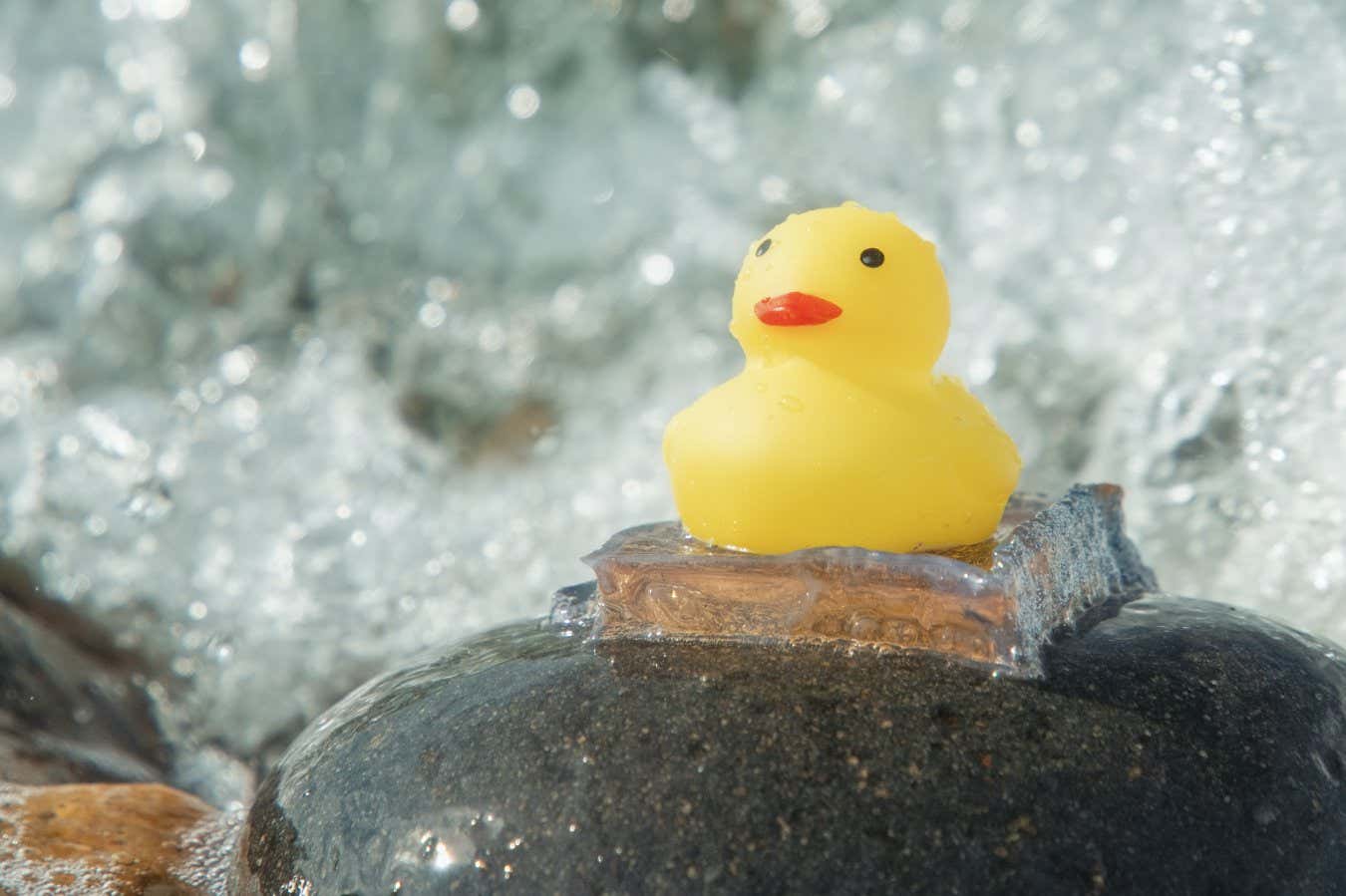Science
New Hydrogel Adhesive Proves Stronger Than Traditional Glues

Researchers have unveiled a groundbreaking adhesive hydrogel that exhibits remarkable strength, even in underwater conditions. This innovative material has demonstrated adhesion capabilities that are ten times stronger than most conventional soft adhesives. The study, led by a team that includes researchers from Shenzhen University in China and Hokkaido University in Japan, has opened new avenues for various applications, including deep-sea robotics, medical procedures, and structural repairs.
Remarkable Testing and Findings
The strength of the hydrogel was showcased in an unusual experiment where a rubber duck was successfully glued to a rock in the ocean, remaining affixed for over a year. According to Hailong Fan, one of the lead researchers, “We developed a super-adhesive hydrogel that works extremely well even underwater – something very few materials can achieve.” This hydrogel is not only stretchy and soft but also boasts an adhesion strength exceeding 1 megapascal underwater.
The team analyzed 24,000 sticky protein sequences from various organisms to identify optimal amino acid combinations for adhesion. This comprehensive research led to the creation of 180 different types of adhesive hydrogels. By employing artificial intelligence to predict effective recipes for these materials, they developed a new class of versatile hydrogels.
Potential Applications and Future Testing
The hydrogel’s utility extends beyond whimsical experiments. In practical applications, it effectively sealed a leaking water pipe almost instantaneously. This suggests its potential for repairing underwater structures or enhancing the water resistance of flexible electronics and robotics.
The material’s biocompatibility was demonstrated through tests where it was implanted under the skin of mice, highlighting its potential for biomedical applications such as securing implants and serving as surgical glue. Zhao Qin from Syracuse University praised the research, stating that it signifies a “paradigm shift in the way we can design high-performance soft materials.” He emphasized the importance of further testing in real-world conditions, particularly on rough or contaminated surfaces.
The research team has filed a patent for this innovative hydrogel, primarily through Hokkaido University. As the hydrogel demonstrates extraordinary stickiness, its relatively thicker formulation could pose challenges in certain applications, necessitating further investigation.
Overall, the development of this super-adhesive hydrogel marks a significant advancement in material science, with promising implications for various fields. The researchers aim to explore its capabilities in practical environments to fully understand its potential.
-

 Lifestyle5 months ago
Lifestyle5 months agoLibraries Challenge Rising E-Book Costs Amid Growing Demand
-

 Sports4 months ago
Sports4 months agoTyreek Hill Responds to Tua Tagovailoa’s Comments on Team Dynamics
-

 Sports4 months ago
Sports4 months agoLiverpool Secures Agreement to Sign Young Striker Will Wright
-

 Lifestyle4 months ago
Lifestyle4 months agoSave Your Split Tomatoes: Expert Tips for Gardeners
-

 Lifestyle4 months ago
Lifestyle4 months agoPrincess Beatrice’s Daughter Athena Joins Siblings at London Parade
-

 Science4 months ago
Science4 months agoSan Francisco Hosts Unique Contest to Identify “Performative Males”
-

 World4 months ago
World4 months agoWinter Storms Lash New South Wales with Snow, Flood Risks
-

 Science5 months ago
Science5 months agoTrump Administration Moves to Repeal Key Climate Regulation
-

 Business5 months ago
Business5 months agoSoFi Technologies Shares Slip 2% Following Insider Stock Sale
-

 Science5 months ago
Science5 months agoNew Tool Reveals Link Between Horse Coat Condition and Parasites
-

 Sports5 months ago
Sports5 months agoElon Musk Sculpture Travels From Utah to Yosemite National Park
-

 Science5 months ago
Science5 months agoNew Study Confirms Humans Transported Stonehenge Bluestones









